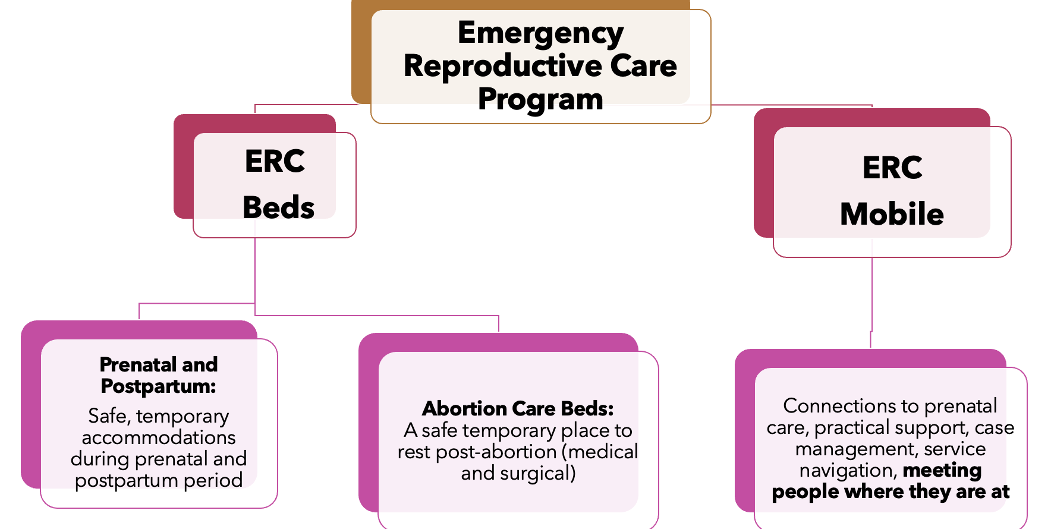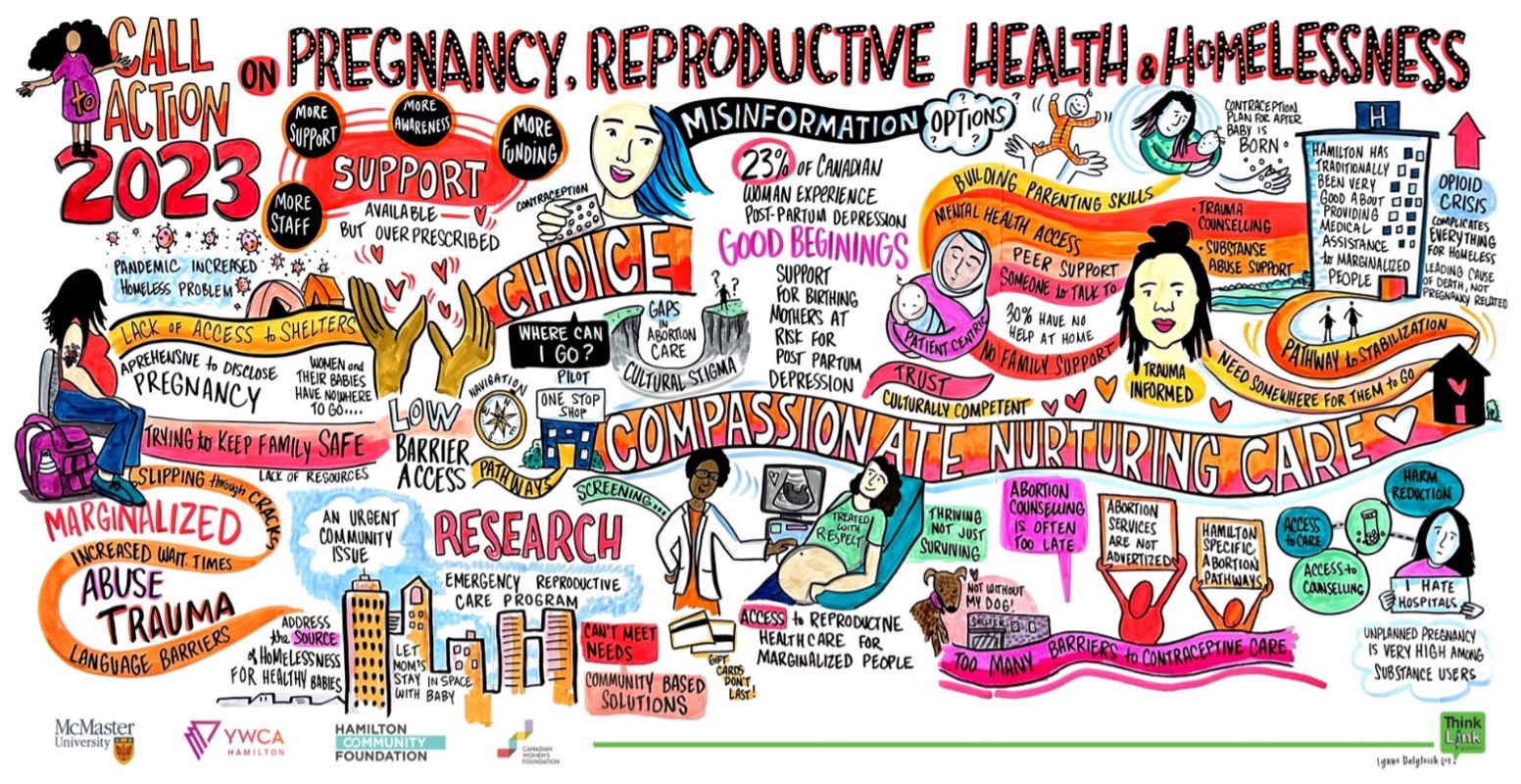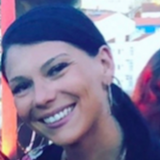It is Sexual Health Week – a chance to reflect on the services, resources, and organizations working to improve sexual health outcomes in Canada – including access to reproductive care.
At YWCA Hamilton, we have been working to promote and provide reproductive care to those who face barriers to access. Women, trans and non-binary peoples’ experiences of homelessness cannot be separated from their reproductive health and rights.
The pandemic was the catalyst for our work in this space – while we have always supported pregnant and parenting people, COVID-19 led to an increase in people experiencing dire conditions of pregnancy and homelessness.
While Hamilton does not collect data on the number of people experiencing pregnancy and homelessness, a study published in 2019 found that over 300 babies are born into homelessness every year in Toronto. It is understood that pregnant people without housing fear losing custody of their newborns, and this has prevented disclosures of housing status, resulting in a significant underrepresentation of the scope of the issue.
In May 2021, we partnered with the Community Research Platform at McMaster University to host a Call to Action. This brought together over 50 community partners for a half-day session to learn from the voices of those with lived experience, hear from clinical care and community-based providers, and engage in a process to inform local systems planning.
Since our initial Call to Action, YWCA Hamilton has worked with community partners and people with lived experience to develop an advocacy strategy as well as a practical community-based response to meet the needs of pregnant people experiencing homelessness at the intersection of gender-based violence, substance use, trauma, incarceration and/or involvement with the child welfare system.
In partnership with Birth Mark (a group of full-spectrum doulas), we began an Emergency Reproductive Care Program at YWCA Hamilton in August of 2022. This blog post describes our Emergency Reproductive Care Program and our work at YWCA Hamilton to enhance supports for people experiencing pregnancy and homelessness.
Our Emergency Reproductive Care Program:

Our service delivery model is divided into two distinct streams: emergency reproductive care beds and emergency reproductive care mobile supports. Support and services are provided by an Emergency Reproductive Care Worker in partnership with Birth Mark.
People experiencing pregnancy and homelessness are referred to this program through multiple pathways, including healthcare partners, shelters and outreach workers who go into encampments. People can be referred to this program at any point during their pregnancy – and immediately after giving birth if they are seeking postpartum respite.
Emergency Reproductive Care Beds:
- Three dedicated beds for people experiencing pregnancy and homelessness
- Safe, temporary accommodations with full meal program, on-site health care, harm reduction services, and 24-hour access to case management support
- People can stay for the duration of their pregnancy
- Housing support workers help find safe, acceptable housing for those who aim to parent their newborn
Abortion Care Beds:
- Safe temporary place to stay for people seeking a place to rest and recover after abortion care
- Support accessing and navigating abortion care, ongoing support from Emergency Reproductive Care worker
Emergency Reproductive Care Mobile Supports:
- Outreach support for people experiencing pregnancy and homelessness living in the community
- Accompaniment to appointments, referrals, supports, case management, service navigation, and advocacy with other services
About the Participants:
Since August 2022, 64 people experiencing pregnancy and homelessness have been referred to this program.
- All participants who have been referred to our program have long histories of homelessness and unstable housing.
- Gender-based violence impacts every single participant – and over half of the program participants shared that they were actively using substances during their pregnancy (64%).
- Most people supported through this program had not had any prenatal care prior to being referred to the program.
- Our program has led to increased retention in prenatal care and postpartum care as well as increased stability and support for people experiencing pregnancy and homelessness.
Program Values:
Our program was developed with the following values at the centre:
- Intersectional Feminist Analysis: Our work is informed by our understanding that women and non-binary people’s experience of oppressive institutions (sexism, racism, colonialism, classism, heterosexism, ableism, transphobia, xenophobia, and other identity markers) are interconnected and cannot be examined separately from one another.
- Harm Reduction: Our program has a Safer Use Space on-site where people can use illicit substances in a supported environment on-site where our Emergency Reproductive Care Bed program is located. We have a partnership with the Hamilton Social Medicine Response Team to prioritize pregnant people for safe supply. Our Emergency Reproductive Care Worker spends one half day per week at the Program for Pregnancy and Substance Use (PROSPR) clinic (an integrated prenatal and substance use care program for pregnant people with substance use disorders) providing on-site support and building connections. Providing comprehensive substance use supports is particularly important given the research emerging highlighting the increased risk of overdose during pregnancy and the postpartum period and the connection between child removal from child welfare organizations and unintentional drug poisonings.
- Pro Choice: We are explicit in our commitment to supporting people who choose to access abortion supports and aim to reduce the barriers to abortion for people who face barriers to access. The Emergency Reproductive Care program provides space and support for people who choose to terminate their pregnancies and we have participated in local and national advocacy around abortion access. We have worked with the Greater Hamilton Health Network to map out care pathways for medical and surgical abortion in our community – and to call attention to the barriers to accessing abortion care. We partnered with Action Canada for Sexual and Health Rights on the Right to Abortion in Canada for the 44th Universal Periodic Review.
- Gender Inclusive: Trans and non-binary people experience pregnancy differently – and require unique services and supports during the prenatal and postpartum period.
- Low Barrier: We are committed to creating low barrier pathways for services that prioritize access to basic needs such as food, housing and safety and enhance prenatal, postpartum, and post-termination supports.
Through reducing barriers to accessing support, housing, safety and care during pregnancy and postpartum, we hope every pregnant woman can find pathways to stability, support, and housing.
Next Steps:
The YWCA Hamilton continues to host annual Calls to Action bringing together community partners and stakeholders interested in revisioning a system where reproductive justice is meaningfully incorporated in advocacy efforts, service delivery and systems planning across gender-based housing services.

Since beginning this program, we have seen success stories and supported women to move into other YWCA Hamilton housing programs with their newborns, including Phoenix Place (transitional housing for mothers and children impacted by violence) and the Putman Family YWCA (permanent supportive housing).
We have also seen tragic outcomes – and we know that much more support is needed for people experiencing pregnancy and homelessness.
The YWCA Hamilton’s goal is to develop housing and supports for people experiencing pregnancy and homelessness that create safe, stable environments that enable people who want to parent to focus on their strengths and limit newborn apprehension.
Now more than ever, we need policy and programming that responds to the intersection of pregnancy, reproductive justice, and experiences of homelessness.

